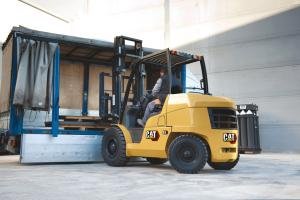Warehouses are the heart of supply chains. They store, organize, and move goods that eventually reach shops and customers. To keep up with demand, warehouses need machines that can handle heavy loads and work for long hours. For decades, Diesel Forklifts have been one of the most trusted machines for this job. They are strong, reliable, and designed to work in tough conditions.
But as the world changes, the future of Diesel Forklifts in modern warehousing is also changing. Questions about fuel, the environment, new technology, and business needs are shaping how these machines will be used. In this article, we will explore the role Diesel Forklifts play today and what the future may look like for them.
Why Diesel Forklifts Have Been Popular
Before looking at the future, it is important to understand why Diesel Forklifts have been so popular in the past and present.
- High Power: Diesel engines are strong and can lift very heavy loads without slowing down.
- Durability: They are built for tough work and can handle rough outdoor surfaces.
- Long Operating Time: A Diesel Forklift can run for many hours without needing to refuel often.
- Trusted for Outdoors: Unlike electric forklifts, Diesel Forklifts are not limited by battery life and are perfect for outdoor use in large yards or construction areas.
These qualities make Diesel Forklifts important for industries that deal with heavy goods, containers, or materials in bulk.
Modern Warehousing and Its New Challenges
Warehousing today is very different from how it was 20 years ago. Customer demands, online shopping, and faster delivery times mean warehouses must be more efficient. Some of the challenges that modern warehouses face include:
- Sustainability Goals: Companies are under pressure to reduce pollution and carbon emissions.
- Technology Growth: Automation, data tracking, and digital systems are changing warehouse operations.
- Cost Efficiency: Businesses want machines that are powerful but also save money in the long run.
- Indoor Safety: Cleaner and quieter machines are often preferred in indoor environments.
These challenges are shaping the role of Diesel Forklifts in the years ahead.
The Future Role of Diesel Forklifts
1. Continued Use for Heavy-Duty Jobs
Even with new technologies and electric machines, Diesel Forklifts will continue to play a key role in heavy-duty jobs. Large warehouses, shipping yards, and construction sites need the raw power that diesel engines provide. For moving shipping containers, steel, and other extremely heavy materials, Diesel Forklifts will remain valuable.
2. Cleaner Diesel Technology
One major future trend is the development of cleaner diesel engines. Manufacturers are improving engines to reduce harmful emissions. This means future Diesel Forklifts may release less pollution while still offering the same power. Cleaner engines will help businesses meet environmental rules without giving up the strength of diesel machines.
3. Hybrid Forklifts
Some companies are also exploring hybrid forklifts. These machines combine diesel engines with electric systems. The diesel engine provides power for heavy loads, while the electric system helps cut fuel use and reduce emissions during lighter tasks. Hybrid designs could be an important part of the future for Diesel Forklifts.
4. Outdoor Warehousing Growth
Modern warehouses are not always indoors. Many businesses use outdoor yards for storage. In these large, open spaces, Diesel Forklifts are perfect because they are powerful, durable, and not limited by battery charging. As outdoor warehousing grows, Diesel Forklifts will still have a strong demand.
5. Integration with Technology
The future will not just be about engines but also about smart technology. Diesel Forklifts may include sensors, GPS tracking, and digital systems to improve safety and efficiency. For example, smart systems can warn operators about overloading or help managers track fuel usage. This will make Diesel Forklifts more advanced and efficient.
Comparing Diesel Forklifts to Other Options
To understand the future better, it helps to compare Diesel Forklifts with other types.
| Feature | Diesel Forklifts | Electric Forklifts | LPG/Gas Forklifts |
|---|---|---|---|
| Power | Very high, best for heavy loads | Moderate to high | Moderate |
| Indoor Use | Not suitable due to fumes | Perfect for indoor use | Usable with ventilation |
| Fuel/Charging | Quick refueling | Charging required | Quick refueling |
| Emissions | Higher but improving | Zero emissions | Lower than diesel |
| Best Use | Outdoors, heavy-duty work | Indoors, clean operations | Mixed indoor/outdoor |
This table shows that Diesel Forklifts will continue to be important for outdoor and heavy work, while electric forklifts will grow for indoor use.
The Balance Between Diesel and Electric
The future of modern warehousing will not be about choosing only one type of forklift. Instead, businesses may use a mix. For example:
- Electric forklifts for indoor areas where quiet and clean machines are needed.
- Diesel Forklifts for outdoor areas and heavy-duty jobs where maximum power is required.
This balance allows businesses to enjoy the strengths of both types while reducing risks and costs.
How Businesses Can Prepare for the Future
If you are thinking about using Diesel Forklifts in your warehouse, here are some ways to prepare for the future:
- Stay Updated on New Models: Look for Diesel Forklifts with cleaner engines and modern safety features.
- Train Operators: Proper training reduces accidents and improves fuel efficiency.
- Maintain Regularly: Keep forklifts in top condition with regular servicing to avoid breakdowns and emissions problems.
- Plan for Mixed Fleets: Consider how Diesel Forklifts and electric forklifts can work together in your warehouse.
Conclusion
The future of Diesel Forklifts in modern warehousing is not about replacement but about adaptation. Diesel Forklifts will remain a key part of industries that need strength, durability, and long operating hours. At the same time, technology and cleaner engines will make them safer and more environmentally friendly.
